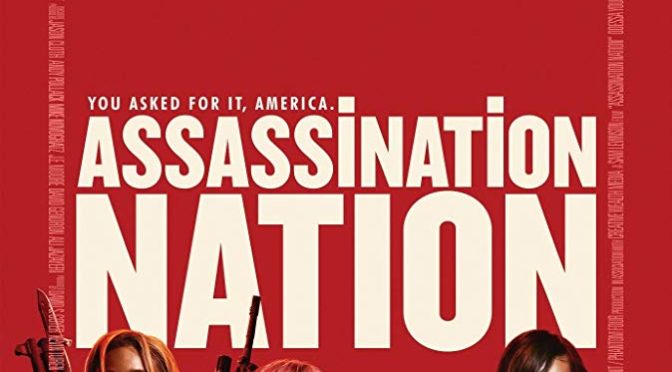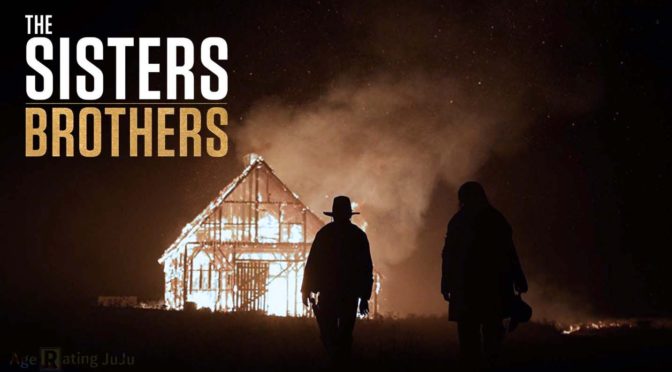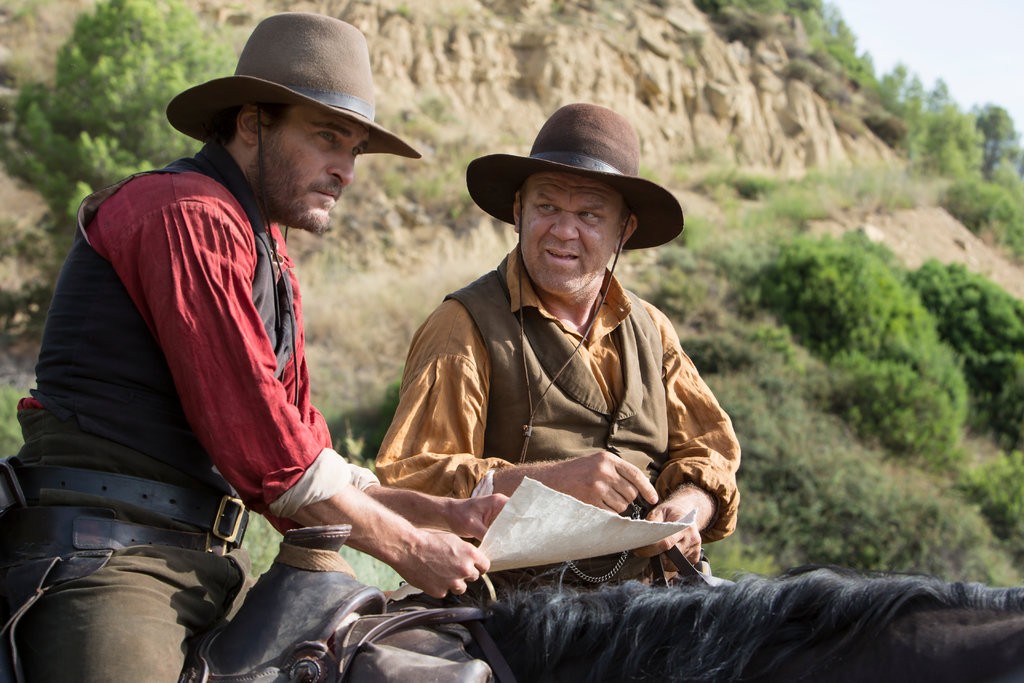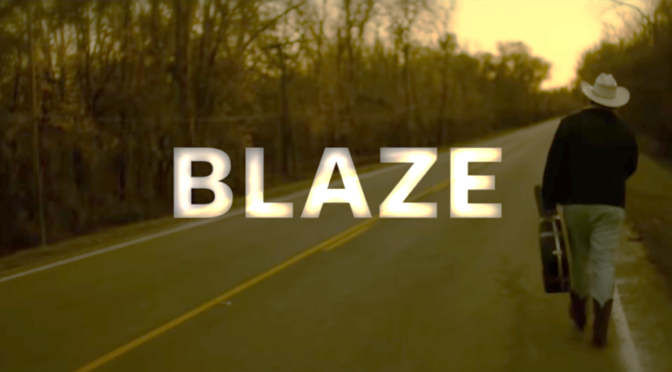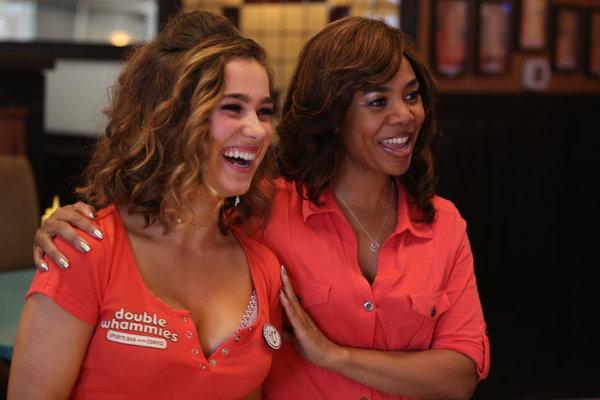Assassination Nation is one of the most explicitly Gen Z titles ever made. The film opens with a trigger warning, features teens dropping modern slang, and heavily involves social media use in its plot. Four young women go about their last year of high school as typical teenagers until personal information is released online en masse and they become the target of an angry mob. The dialogue and performances of the leading teens is exaggerated to fall into the worst stereotypes of how the teens of today communicate. It can sometimes be irritating to hear the self-centered, crass way they talk but it plays into the transgressive vibe of the film.
Director Sam Levinson (Another Happy Day) leans into the Gen Z tone with his visuals. He shoots several scenes of debauchery at high school parties but does so with unique methods. He frequently uses three videos displayed in split screen like vertical footage shot on a smartphone that gives the film a voyeuristic aesthetic, reminding the viewers that every part of these teenagers’ lives could be recorded at any time, whether they want it to be or not. The abundance of these party scenes can be excessive and the depravity displayed can be a little repulsive. Levinson continues to use these sequences even after the point has been made. When things escalate and the townspeople no longer trust each other, they begin to wear masks for privacy. Regular people dressed in masks to do mundane chores like mowing the lawn is an arresting visual. It immediately drives home the lack of control we have over how our lives are displayed.
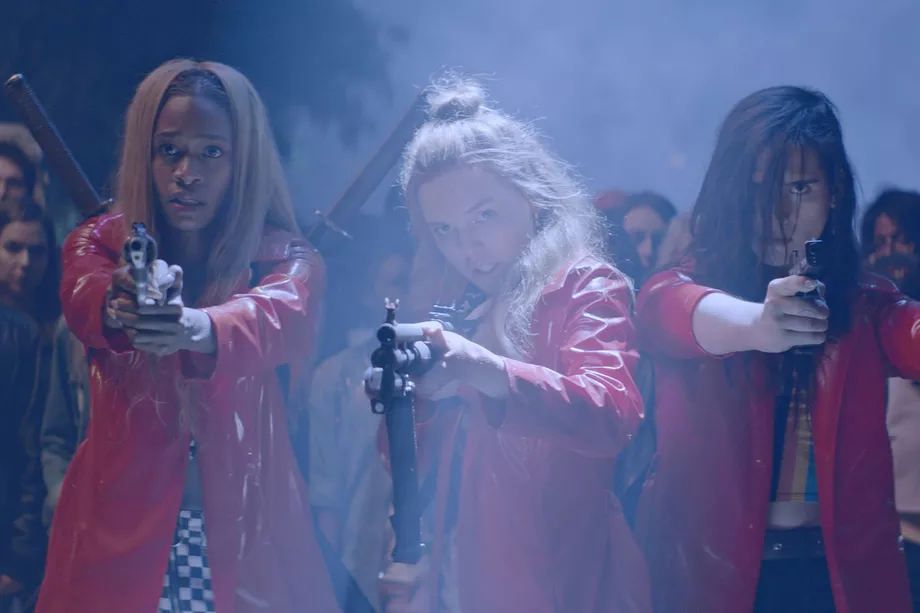
Like a Black Mirror episode, the film’s themes center on technology, disregard for humanity, and an extreme case of what their collision could lead to. The film begins with a local politician having his personal pictures and texts released. They reveal a secret double life of crossdressing and homosexuality that completely contradict his conservative, family values campaign. Because of his status and the revelations found, his leaks do not come under fire. When this leads to horrific consequences, they become new topics for “edgy” humor and memes completely unconcerned with the person they discuss. Levinson takes the topic a step further when the town’s residents have their files released. The townspeople are in uproar over having their privacy violated while still downloading data about their neighbors and snooping into their personal lives. Their anger is contrasted with people, mostly teenagers, not only viewing this content but also encouraging more releases. They show no remorse for their actions and no empathy for those affected. Everything they do is “for the lulz”. Even when people are suffering from these cyber-attacks, they still cannot escape the dehumanizing effect of the internet and virality.
When the time comes for bloodshed, Levinson brings a playful and stylish tone to the action. As the townspeople try to discover, and punish, the culprits behind the data leaks, copious amounts of blood are spilled, even rivalling Neon’s other title Revenge. There are references to Japanese B-movies from the 70s in the flamboyant red outfits the women wear and in the over-the-top weaponry they use to defend themselves as Levinson has fun with their revenge. The film also features the best home invasion scene since Blue Ruin. Levinson places his camera outside the house and smoothly moves around the exterior and up and down the multiple floors, observing the trespassers and the unsuspecting victims from a distance in long unbroken takes. Rather than being an omniscient eye, the camera appears to be searching, and struggling, to follow the action. It reveals bits and pieces of people moving about and the lack of details combined with the knowledge of what is coming is nerve-wracking. Assassination Nation works as both a commentary on the dehumanization of technology and as cathartic, thrilling genre fare.

4/5 stars.
